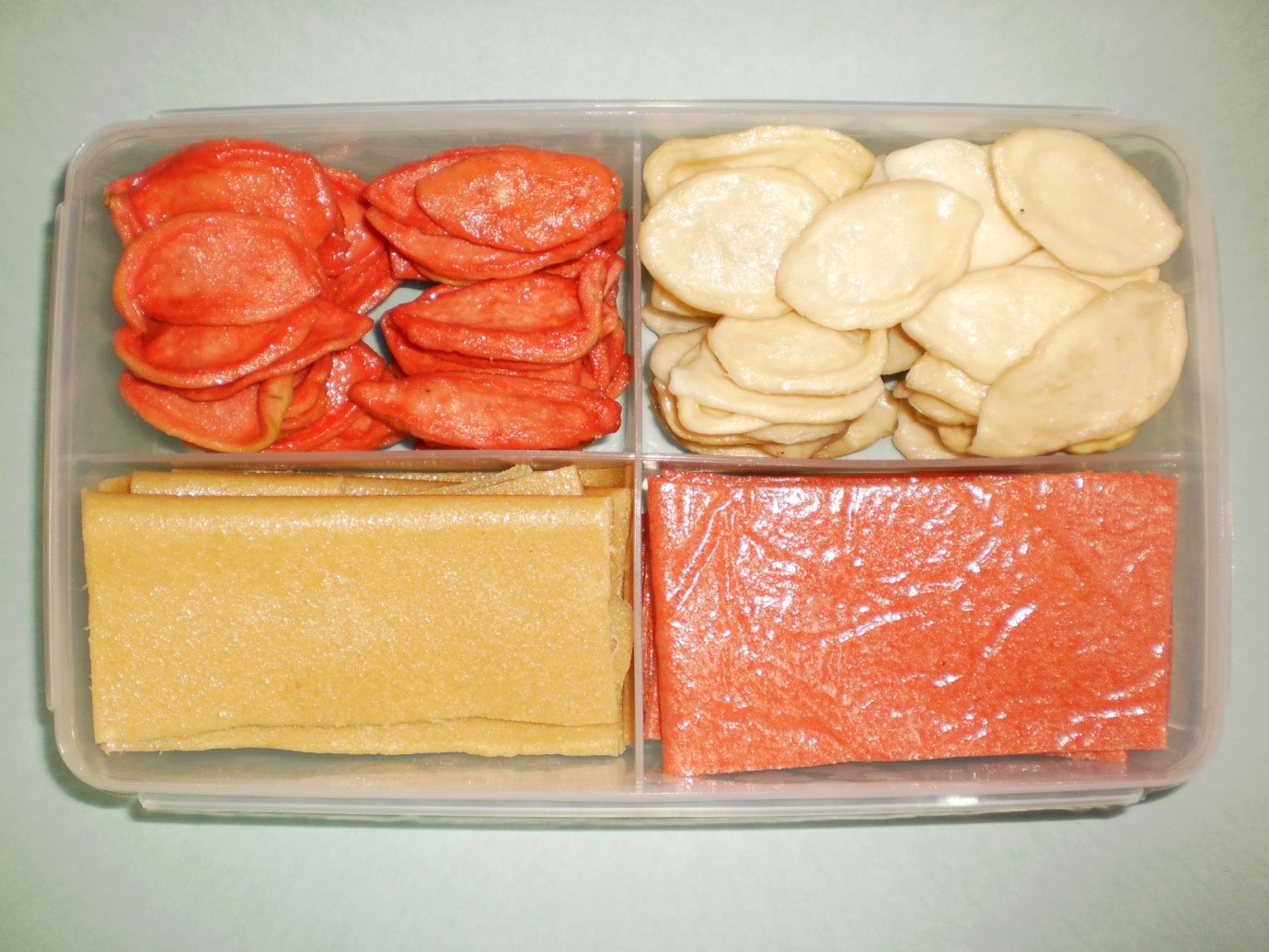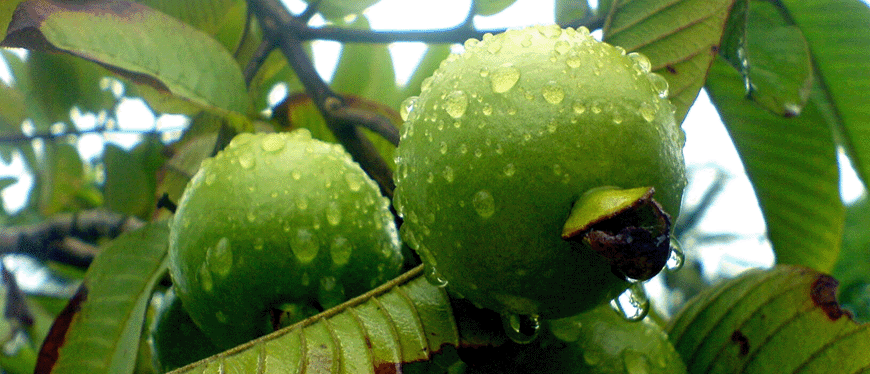Crop Production - Technologies
Guava fruit bar
Guava is
known for its excellent flavour, delicious taste and healthful
values as it is rich in vitamin C. Guava
fruit is highly perishable in nature and need value addition.
There are very high post-harvest losses of papaya fruits in
India. Sometimes the farmers are not able to sale very small or
very big fruits in the fresh market resulting huge losses.
This technology
helps in utilization of guava fruit into bar which is not
available commercially. Fruit bars are
highly preferred processed products as they are nutritious, good
eye appeal, delicious, easy to transport, convenient with good
shelf life. Commercially available product is
mango bar. A process has been developed to utilize both red as
well as white guava pulp for bar making. The final product is of
natural guava flavor, with very good appearance and taste.
The product can
be consumed as confectionery item (snack) and is
highly suitable for children, mountaineers, defense forces in
difficult areas where carrying and delivering bulky and
perishable fresh fruits is difficult. It is a dehydrated
product suitable for manufacture under micro/ small and medium
size industries. This technology may encourage small scale
processing units in rural areas.
-

About 6-7 kg ripe fruits are required to make one kg of fruit bar and shelf life of product is 3 months for white and 6 months for pink fleshed under ambient conditions.
- * Osmotically dehydrated Guava Slices
- * Osmotically dehydrated Fruit bar
- * Biological control of tea mosquito bug Helopeltis antonii on guava
Biological control of tea mosquito bug Helopeltis antonii on guava
IHR has developed a biological control strategy for management of Helopeltis antonii infesting Guava by using fungal pathogen Beauveria bassiana. Weekly spraying of this bio- pesticide @ 1x109 spores/ml with suitable adjuvants recorded significant reduction in the pest damage that was comparable with the chemical pesticides.

